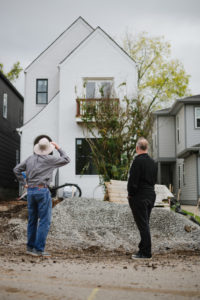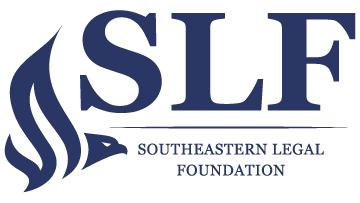The City of Nashville is once again holding building permits hostage until private property owners agree to foot the bill for publicly owned infrastructure, namely sidewalks throughout the city. Nashville has decided sidewalks are a priority. The problem is that Nashville does not know how to pay for them. Looking for a source of funding, Nashville has resorted to using its building permits as currency. Not only is this not good public policy, but it is also unconstitutional because building a house in one part of Nashville does not create a need for sidewalks across town. Southeastern Legal Foundation has teamed up with Beacon Center of Tennessee and plaintiffs Jim Knight and Jason Mayes and filed a federal lawsuit to stop Nashville’s extortionate law.
Read More
 Jim Knight bought a piece of property on Acklen Park Drive, which lacks sidewalks. In Jim’s case, building sidewalks on Jim’s property would cause problems for the city. Metro Public Works and the Stormwater Department determined that building a sidewalk there would cause drainage issues for the neighborhood. Nashville told him that he could build a modified sidewalk or pay a sizable fee to get out of the condition altogether. Jim has thus far refused to pay, which is holding up his building project.
Jim Knight bought a piece of property on Acklen Park Drive, which lacks sidewalks. In Jim’s case, building sidewalks on Jim’s property would cause problems for the city. Metro Public Works and the Stormwater Department determined that building a sidewalk there would cause drainage issues for the neighborhood. Nashville told him that he could build a modified sidewalk or pay a sizable fee to get out of the condition altogether. Jim has thus far refused to pay, which is holding up his building project.
Jason Mayes’s parents gave him and his family the vacant lot next to their home on McCall Street. Out of a desire to remain close, Jason and his wife planned to build their family home on that lot. When he applied for a building permit, Nashville demanded he build a sidewalk even though there are no sidewalks on his side of the street. As the picture depicts, there are no sidewalks anywhere around the property. Jason pleaded with the city to be relieved of this obligation. The City made him comply anyway. Jason wound up having to pay Nashville an $8,800 “in lieu” fee before he could proceed with building his family’s home.
The problem is, that if Nashville wants sidewalks, then Nashville needs to pay for them. It cannot make its citizens pay for publicly owned infrastructure. This case is our second challenge to Nashville’s sidewalk law in light of the city’s decision to revise the law in response to our first challenge. The judge in the first case ruled that she would not address the law as revised.
Nashville makes homeowners pay for public sidewalks by holding their building permits hostage. The homeowner must construct sidewalks or pay the city to build them. This is a requirement even where there are no sidewalks to begin with, and even if the person did not destroy an existing sidewalk. Nashville’s sidewalk law is unconstitutional. It cannot use its building permits to fund unrelated city projects.
The sidewalk law makes absurd demands. It doesn’t matter whether the neighborhood has perfectly functional existing sidewalks, or no sidewalks at all. People are forced to build sidewalks in neighborhoods where it makes no sense. People are forced to destroy existing sidewalks and rebuild them.
